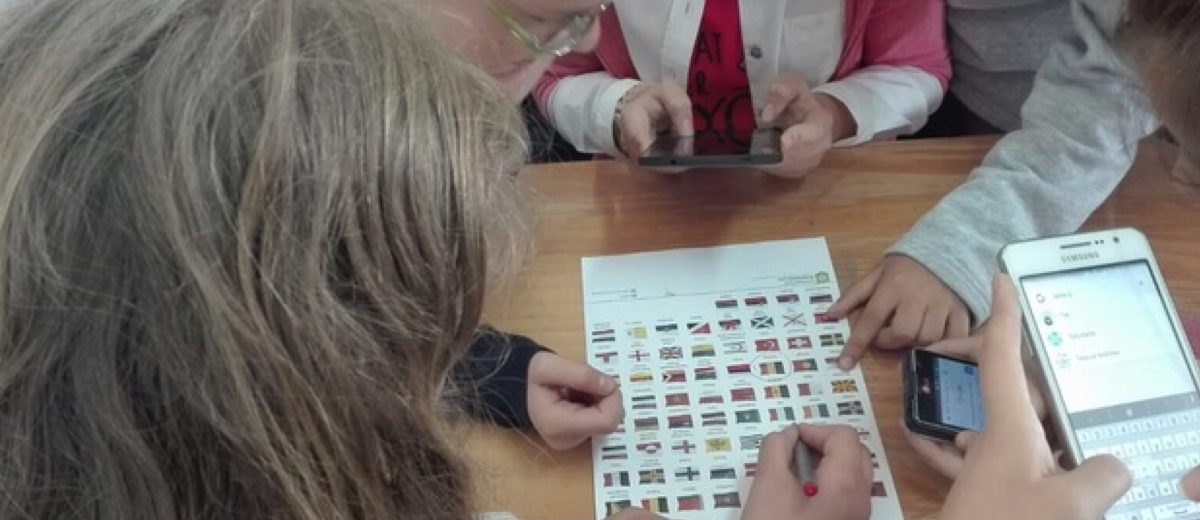Where do we begin to help shape Europe’s future?
Surely with our own children, suggest Laura and Elina, two of my Schuman associates.
Shouldn’t we be encouraging our children to understand the Europe in which they are growing up? Shouldn’t we be equipping them to think about the kind of Europe they would like to inherit from their parents’ generation? Shouldn’t we be telling them the story of how the European nations started working together instead of competing and fighting? And why there has been seventy unprecedented years of peace since World War Two? Shouldn’t we help them appreciate the richness and diversity of the cultures of our neighbours, while being justly proud of the positive aspects of our own national cultures and traditions? Shouldn’t we teach them to choose for the common good instead of seeking our own interests first?
Laura Mihaly lives in Cluj-Napoca in Romania. Last year she proposed to a local school to hold a special Europe Day class for 12-year-olds on May 9. The school agreed, so Laura invited a lecturer from the faculty of history at the University of Cluj to present the story of Robert Schuman, ‘the man with a vision for ending war in Europe for good’.
Laura then split the class up into teams and gave them activities to pursue. They had to go online and find the names of the member states of the European Union, circling them on a sheet showing flags of all the European nations. They had to find out the names of the presidents of the European Council, the European Commission and the European Parliament; and when Romania became a member of the EU.
Questions
To end the lesson, Laura asked the children to write down answers to two questions:
• if you had the chance today to visit President Iohannis (of Romania), what would you like to ask him about the future of our country?
• if you had the chance today to visit the EU Parliament, what would you like to ask the members of the parliament about the future of Europe?
One answer to the first question was: could you tell our teachers not to give us homework anymore? Most however took the task seriously and came up with such questions as:
• Why did you allow the migrants in Europe?
• Can you make peace in the world?
• Will all the countries be part of the EU?
• Why does Britain want to leave the EU?
• Will there be another war in Europe?
Elina Placentino lives in a little Finnish town called Haukivuori. As a teenager, she represented her country in a European Youth Parliament, a very positive experience which she would like others to share. This has been her motivation behind organising the annual European Christian Youth Parliament, along with her husband Cedric.
But Elina believes young school children like her own two girls should already be encouraged to understand more about Europe. So she too has planned a school lesson for May 9 next month. She wants to start with two questions, writing the answers on the board:
• What comes to your mind when you hear the word ‘Europe’?
• Which words would you use to describe Europe?
Elina has prepared another round of questions:
• What is the EU?
• What do you know about the EU?
• What is the 9th of May?
• Why do people celebrate it?
• Should we celebrate it?
• Why? Why not?
Debate
Before presenting a short video telling the story of Robert Schuman and the beginnings of the European project, Elina has a written quiz for the students. As they watch the video, they can correct their answers where necessary and check them among their classmates afterwards.
The students then engage in a debate about the necessity of the EU, with some assigned to argue for the EU, others against. Elina plans guidelines for appropriate vocabulary: (I think… / I believe…/ I agree… / I disagree…)
In groups of three, the students will be challenged to find constructive answers to the question: How can we make Europe a better place? Then they will briefly present their ideas to the rest of the class.
For homework – since President Iohannis has no jurisdiction in Finland – Elina plans to ask the students to write a short essay on: What can I do to make Europe a better place? or, What will Europe be like in 50 years time?
Laura and Elina recognise that the future of Europe is too important to leave just to the politicians. It’s our Europe. It’s our future. It’s our responsibility. And it’s our children’s Europe. It’s our children’s future. And it will be our children’s responsibility.
Surely they deserve a better start than we had in our generation!
Till next week,




Thank you Jeff, it really is a blessing to have daughter like Elina.